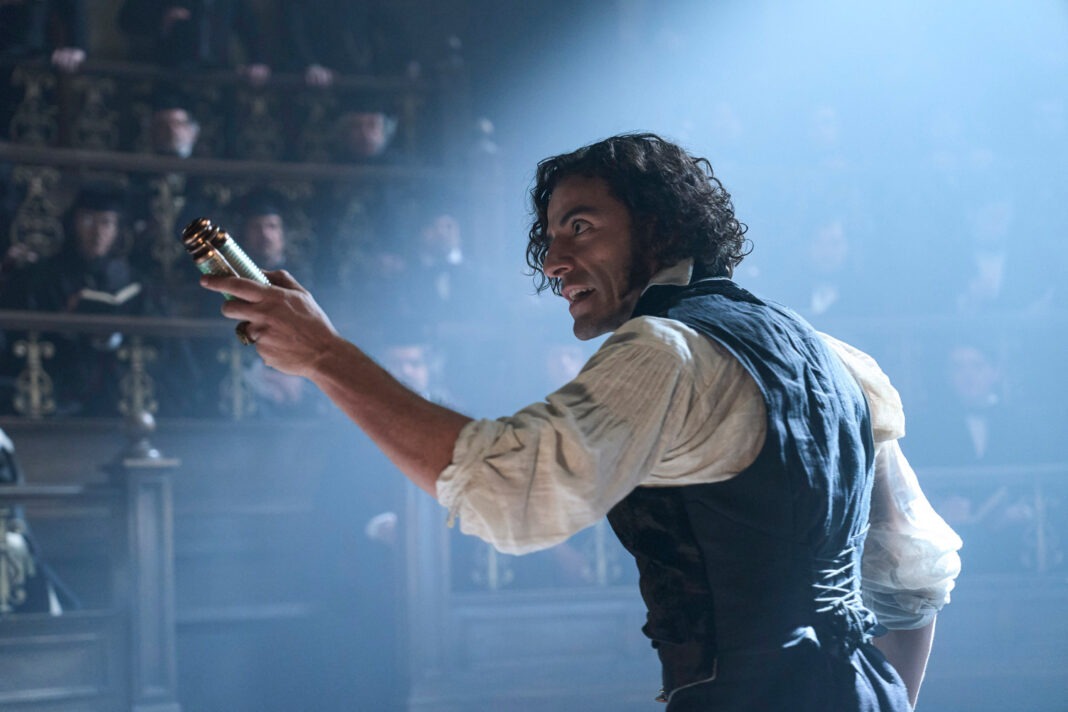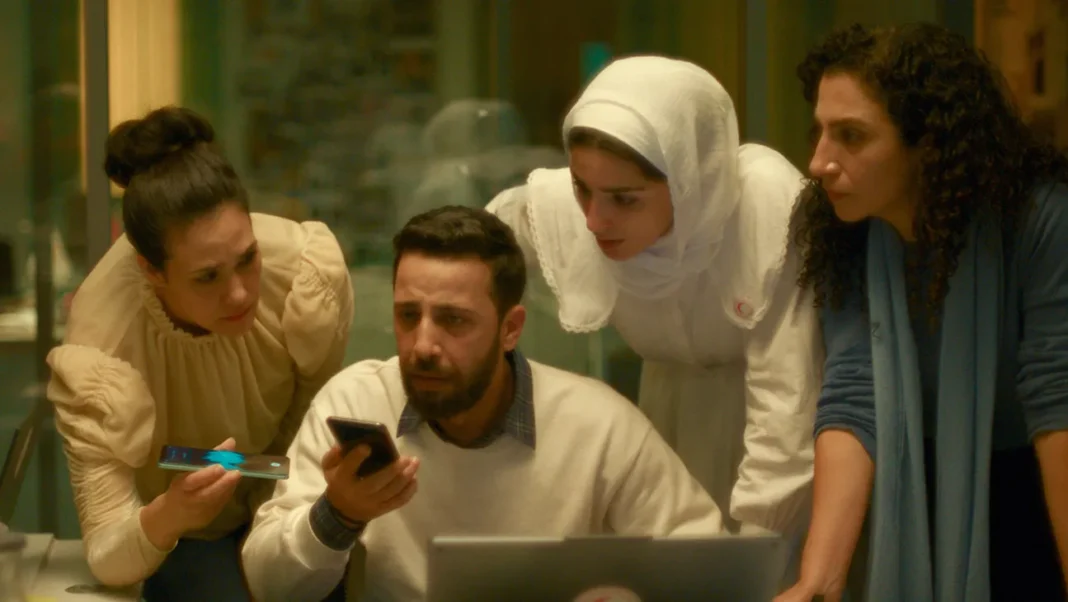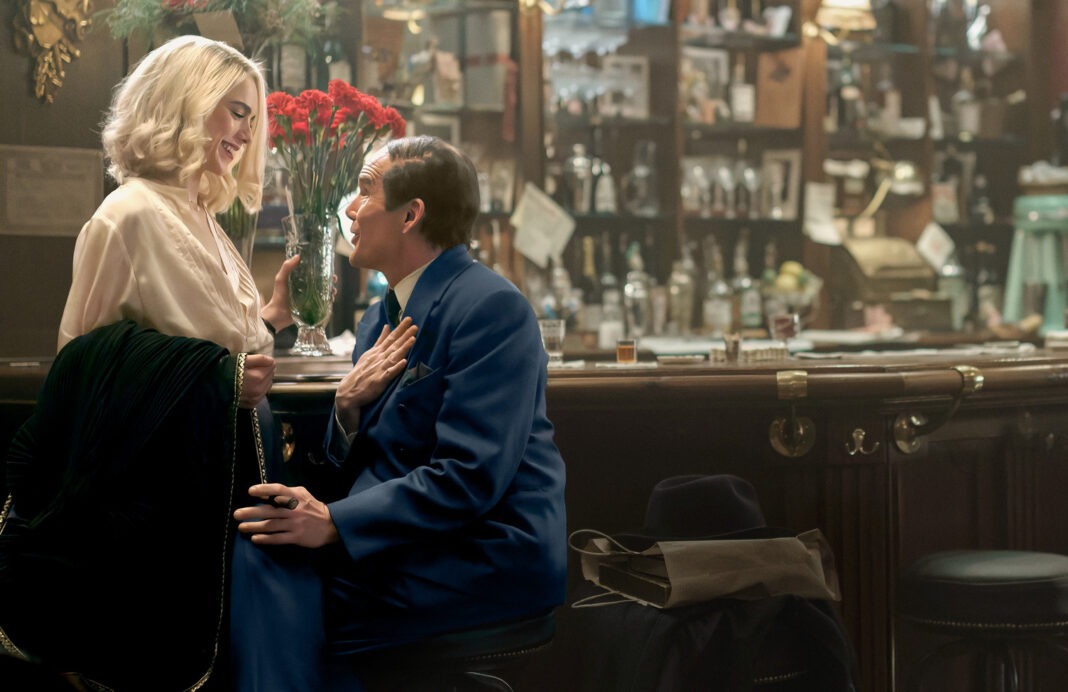Since Mary Shelley first introduced Frankenstein just over two hundred years ago, it’s a story that has become known in all corners of the world. How much audiences actually know of the original novel or whether they’ve seen or read some later version is a question, but the basic premise of a man creating a monster should be assumed as common knowledge. Proving that there is still plenty of originality to mine from this oft-adapted tale, Guillermo del Toro delivers a visionary interpretation that casts the monster and his maker in a new light.
In what’s billed as the film’s prelude, a group of sailors stranded somewhere far north on their ice-stuck boat finds Victor Frankenstein (Oscar Isaac) and brings him aboard as a creature howls in the distance. After the monster (Jacob Elordi) makes quick work disposing of the sailors who stand in his way, he falls into the freezing water, seemingly dead. Unconvinced since he doesn’t believe anything can kill his creation, Frankenstein tells the ship’s captain (Lars Mikkelsen) everything, starting from his early skill for medicine and science that led him to make what he now believes to be a true abomination.
This film spends a great tale of time on Frankenstein’s backstory, showing how his strict father (Charles Dance) pushes him to put undue pressure on himself and how he was already defying conventions before being approached by an eccentric benefactor (Christoph Waltz) with unlimited means to fund his work. Frankenstein is briefly distracted when he meets Elizabeth (Mia Goth), the fiancée of his brother William (Felix Kammerer), but he puts – and loses – everything he has into the idea that he can bring someone back from the dead, even if, as he realizes when it happens, he had never planned for what to do next and what its new life might be.
Del Toro is a filmmaker with a particular passion for making movies about misunderstood monsters, with Pan’s Labyrinth and The Shape of Water the most high-profile standouts from his filmography. This is no exception, and like each of his previous projects, there’s a tremendous amount of care put into how he frames everything and allows the tone of the film to change throughout, beginning as a blend of action and horror and then transforming into a melancholy meditation on loneliness and regret. At times, it feels like Robert Eggers’ Nosferatu, and at others, it’s something much more sensitive and accessible, removed from terror and warmly pensive.
Isaac puts on a British accent to play a mad scientist, one driven to obsession by his determination to do something impossible, and it’s a memorable tormented performance. Elordi is unrecognizable in a new interpretation of this monster and how he might be more human, and the choices he makes in terms of how he moves enhance the character greatly. Goth and Waltz are both well-cast as influences on Frankenstein’s who have their own visions for what this creation will be.
Enlisting regular collaborators like cinematographer Dan Laustsen and composer Alexandre Desplat proves very worthwhile, and this film is a visually stunning journey, presenting a daunting vision of Frankenstein’s laboratory and the icy setting for much of the film’s action. Running two and a half hours, this feels like an epic tale, one that makes good use of its time to document the birth of this monster and his response to not being allowed to see the world as any living being would. Del Toro’s latest shouldn’t disappoint his devoted fans, and even those who aren’t seeking a fresh read on Frankenstein will still find a great deal to appreciate about this film, which, despite coming soon to Netflix, is one best saved for a theatrical experience.
Movie Rating: 8/10



